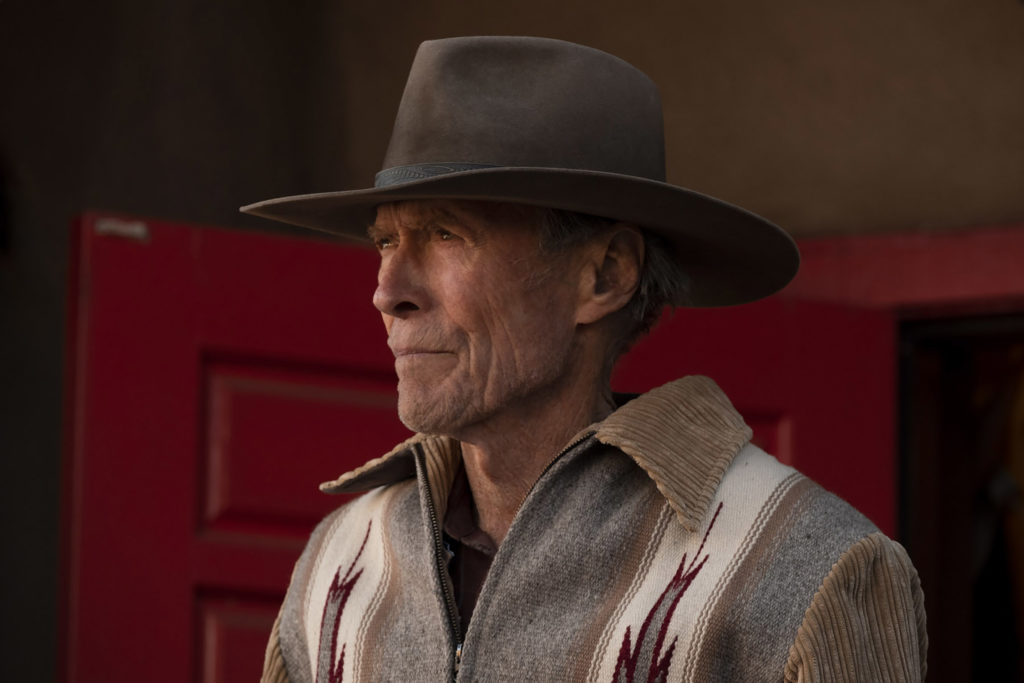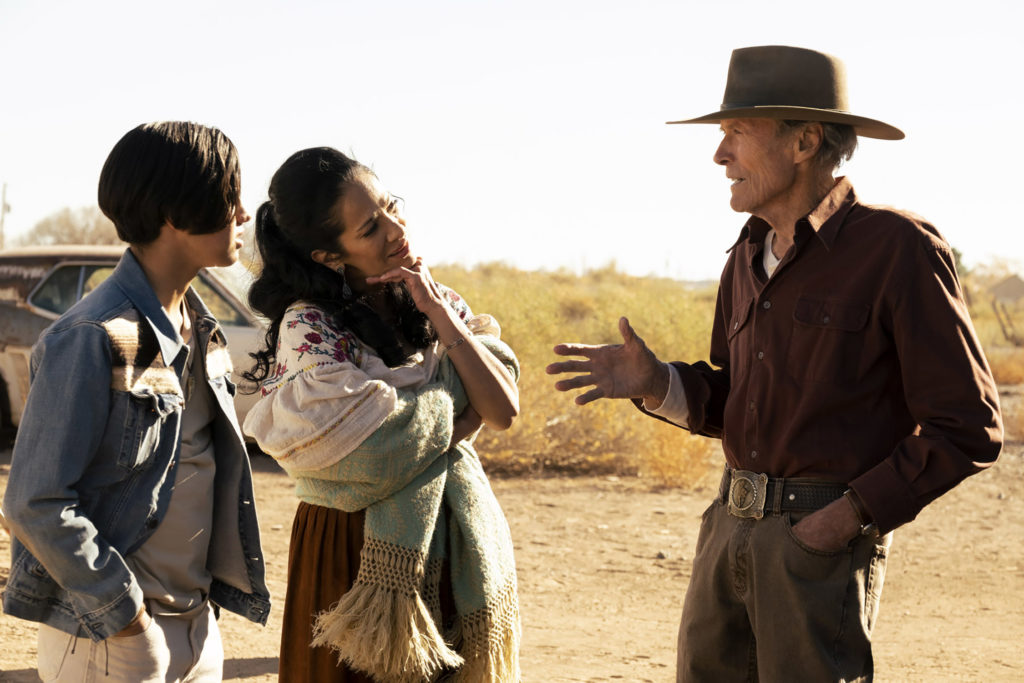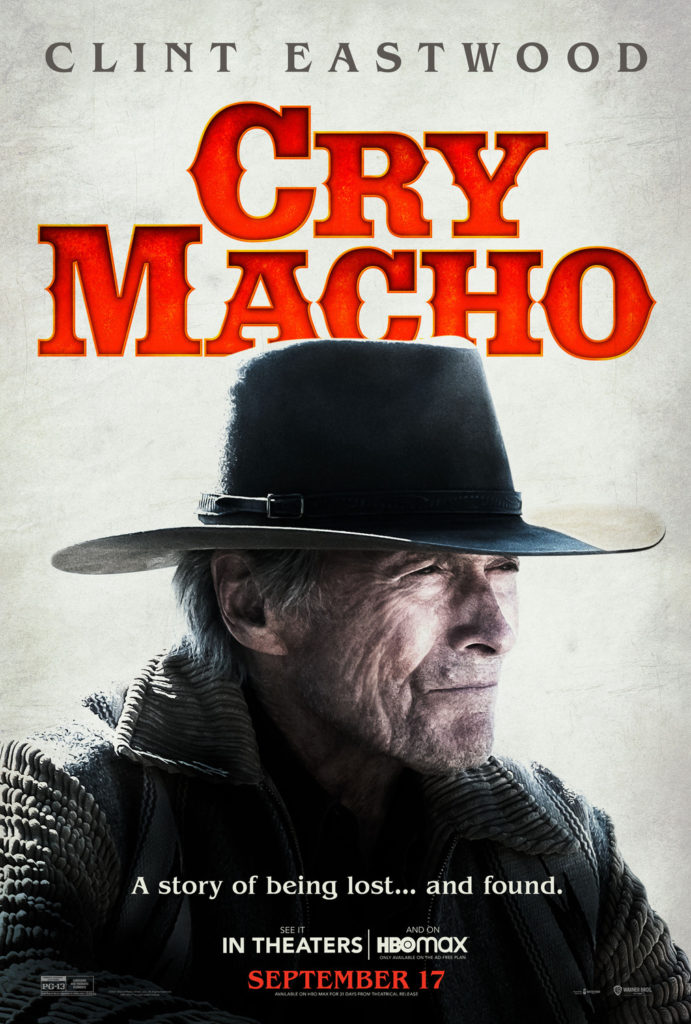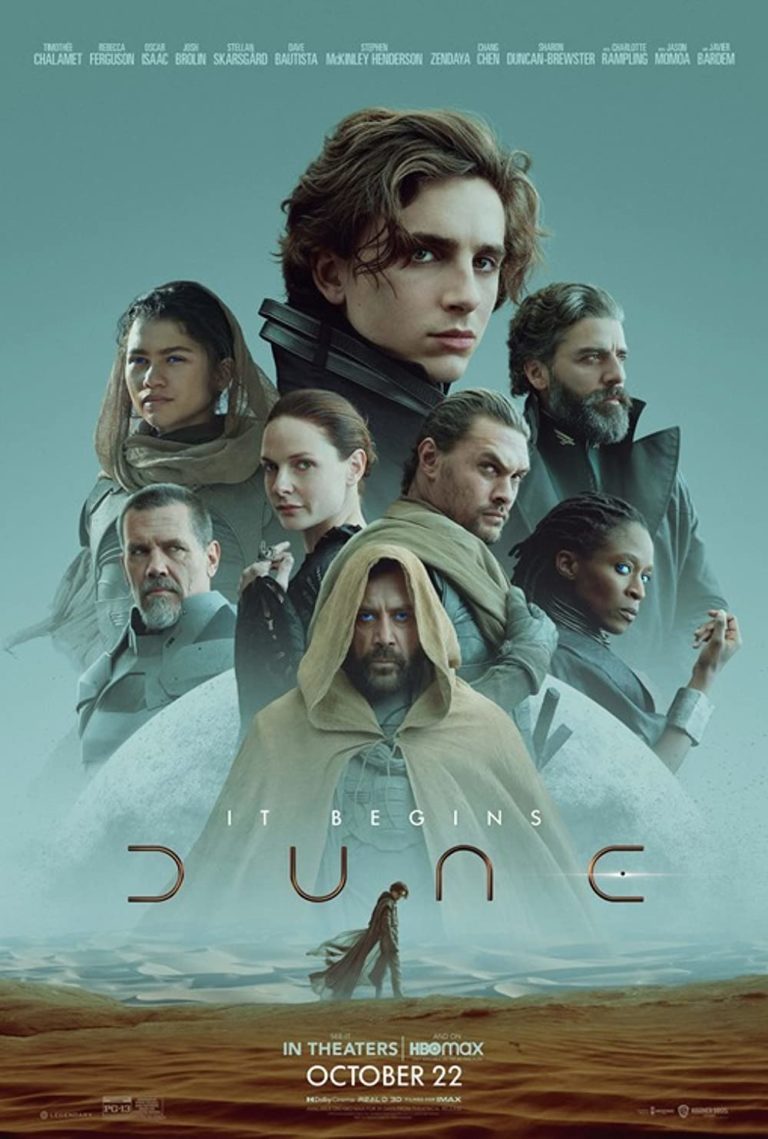Clint Eastwood, who turned 91 this year, is a man of many things. Politics aside, it feels like it’s nearly impossible to argue that he isn’t a good director, actor, and a very talented filmmaker across the board – look at his filmography stemming back to the 1950s. Eastwood has a presence of intimidation and a legacy built off the western genre, which some may argue he helped shape what it is today. So when he’s at the helm of a new neo-western film as a director and lead actor, one can only think that the film would at the very least resemble the very knowledge he helped layout nearly 70 years ago. I mean, having the resilience to keep pumping out films when you’re older than The Empire State Building is nothing short of admirable.
There is no denying the ambitious undertaking that is at the forefront of Macho Cry. To say anybody can do that at 90 plus years of age is simply not true. Just go ask your Great-Aunt Karen down at the old-folks home and you’ll have your answer! But for as ambitious and impressive as it is for Clint Eastwood to keep these projects rolling across the flat plains and desert-scape, there’s also no denying that it feels like he’s trying to grasp onto something more than what he’s capable of. And it shows.

Macho Cry is about Mike Milo (Eastwood) being hired by his former rodeo boss, Howard Polk (Yoakam), to travel to Mexico and retrieve Polk’s 13-year-old son, Rafo (Minett). After Mike finds Rafo and his pet rooster, Macho, they embark on a long journey back to the border where they face quite a few challenges. Eventually, they form a bond and share insights about masculinity, what it means to be macho. The rest is pretty predictable from there on out. To say that Cry Macho will be remembered for its unremarkable screenplay would be a lie unto itself.
The biggest flaw with Macho Cry is how they tried to put a band-aid on the very thing that holds the film back from being anything remarkable. The script was written in the 70s by the author of the book itself, N. Richard Nash. Eastwood hired his frequent collaborator, Nick Schenk, to update the script, but the result leaves us questioning what exactly was changed? The film’s setting is the 1970s, but it doesn’t utilize the era to its benefit. Nothing from the costumes, locations, etc. feels like it is the 1970s. The only thing that does fit is the dialogue and writing of the characters, but only as if they were filmed in the 70s when it was first written. In other words: the screenplay feels unchanged to what it could have been by today’s standards. To place the movie in the 70s feels slapped on rather than addressing the core issues of the story that could have been updated. Everything about it is outdated and very surface-level. Nothing about the dialogue exchange between Eastwood and Minett is believable, nor is their situation overall.
The paper-thin themes presented throughout the movie could easily be relevant to today. You have shows, like Ted Lasso, for example, that tackle this toxic masculinity mindset that’s embedded in our society. It’s very much up-to-date and on par with where we are as a collective. Cry Macho has nothing about it that takes risks with commenting on the very thing it so desperately loves to over-explain. The character of Mike Milo does the opposite of what the core of the story tries to sell. It feels as if he was written to be this rough cowboy with a chip on his shoulder. Instead, we get a fragile 90-year-old-man acting like “get off my lawn” is the persona that embodies the hard lifestyle of a retired rodeo star. And Rafo, a character meant to be naïve to the world and show his strength to outsiders, is nothing more than a tool that allows Mike, and other characters alike, to talk their minds rather than having subtext to chew.

And for as much as the film tries to convey these loose, vague ideas, it fails to address other problems coherently that arise from its convoluted plot. How to deal with selfish families should be a grander theme explored throughout Cry Macho’s runtime. When it has opportunities to branch off and make a memorable scene from the movie, it reverts to a rather weird claim that not being macho might solve all family issues. It repeats itself by showing Eastwood as a man who is (for whatever reason) wise beyond his age in terms of being a cranky cowboy with no stakes other than a backstory that gets lost in needless exposition dumps.
The underlying problems of Cry Macho keep coming back to the abysmal writing that makes the actions of Eastwood and Minett feel like they are forced, and perhaps one could argue that Mike Milo’s character is meant for somebody a little bit younger. I get the ambition and undertaking Eastwood had with wanting to act and direct in this; however, the plot has no stakes, the characters are painfully stereotypical, and the screenplay highlights the lack of direction Eastwood could, and should, have approached the project with from the get-go. The core of the story has no heart and passion. By the time the credits roll, I felt relieved as if I had woken up from a nap.
Overall, Cry Macho could have benefited from better direction and writing. I wouldn’t want this to be Eastwood’s last film before (if?) he retires because it’s not the big bang that a man with his legacy deserves. We need to see him ride off in the sunset becoming nothing more than a silhouette as a last hoorah for the cowboy that is officially retired. There’s something great about that image, especially with music that acts as an homage to all of his films. Cry Macho is not that kind of sendoff and will, unfortunately, become one of his more forgettable films from his extensive filmography.



